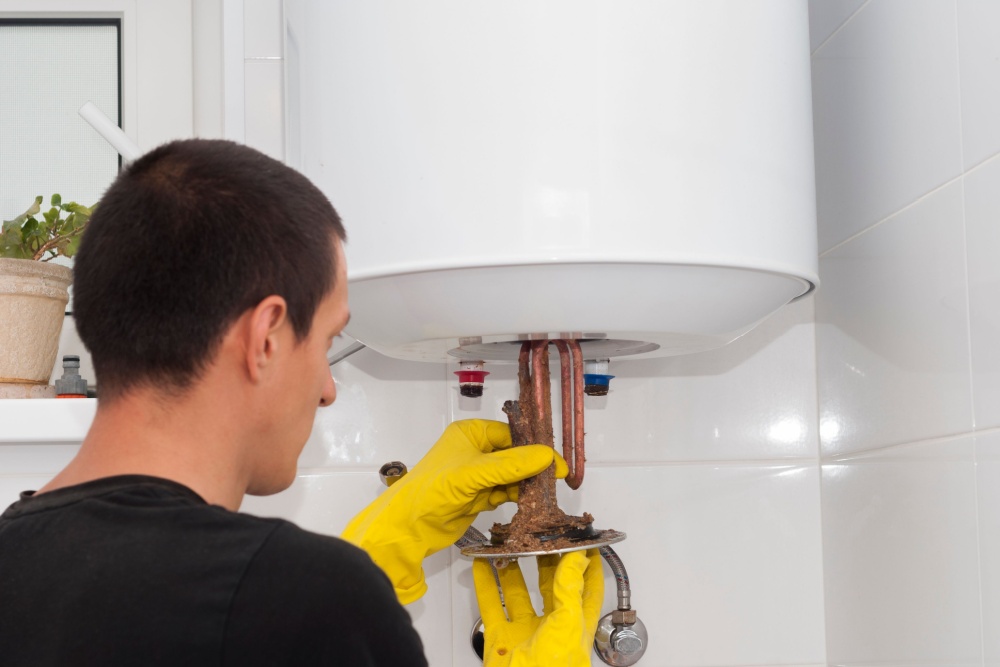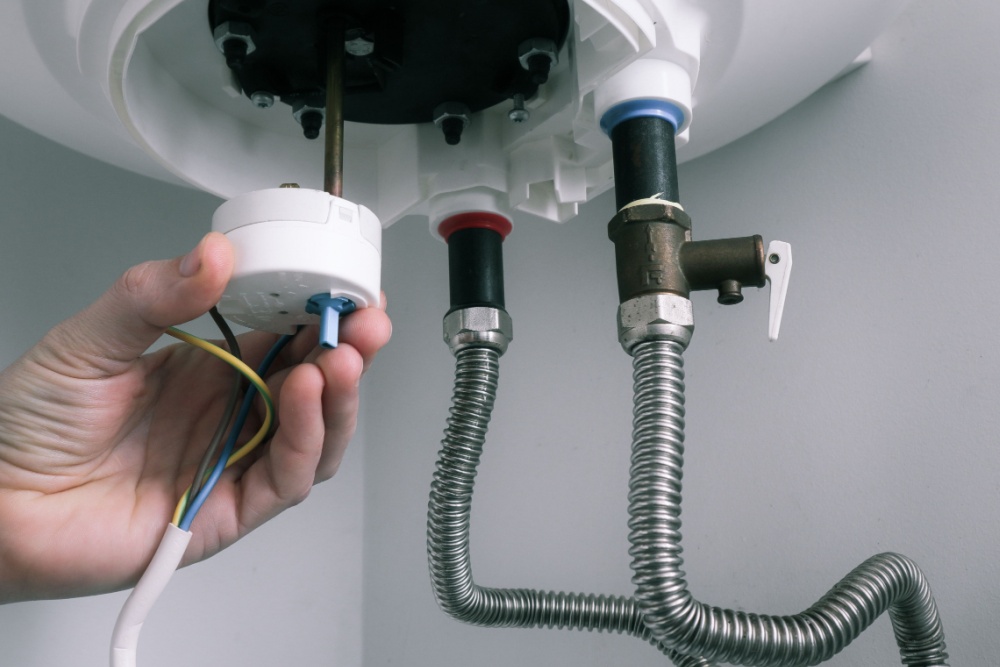Your water heater is one of the most important appliances in your home, responsible for delivering hot water for showers, dishes, and laundry. However, like all appliances, water heaters have a limited lifespan. Recognizing the signs of a failing water heater can save you from unexpected cold showers, high energy bills, or costly water damage. So, how do you know when to replace your water heater?
Here’s a guide to help you identify when it’s time for a replacement and tips for water heater maintenance to extend its lifespan.
Signs it is time to change your water heater
1. The Age of Your Water Heater
Most traditional tank water heaters last about 8 to 12 years. If your unit is approaching this age, consider a replacement even if it appears to be working fine. Older water heaters are prone to sudden failures, and upgrading to a newer, more efficient model can save you money on energy bills.
Tip: To check the age of your water heater, look for the serial number on the manufacturer’s label. The first two digits often indicate the year it was made.
2. Inconsistent Hot Water Supply
Have you noticed that your hot water runs out faster than it used to? Or does the temperature fluctuate during use? These issues can indicate sediment buildup in the tank or failing heating elements. Both are signs that your water heater may be nearing the end of its life.
3. Discolored or Rusty Water
If your hot water appears rusty, cloudy, or has a metallic taste, it could mean the inside of your water heater tank is corroding. Corrosion weakens the tank and often leads to leaks, so if this occurs, it’s time for a replacement.

4. Unusual Noises
Loud rumbling or banging sounds coming from your water heater are usually caused by sediment buildup at the bottom of the tank. As the sediment hardens, it can reduce efficiency, damage the tank, and signal the need for a new unit.
5. Water Leaks Around the Unit
Even small leaks around your water heater can lead to significant water damage in your home. Leaks are a clear sign that your water heater tank is failing and should be replaced immediately.
6. Frequent Repairs
If you’re calling a technician more often than usual to fix your water heater, it might be more cost-effective to invest in a new unit. The cumulative cost of repairs can quickly add up and surpass the price of a new, energy-efficient model.
Benefits of Water Heater Replacement
Replacing your water heater before it fails offers a range of benefits, ensuring your home runs smoothly while saving you money and stress.
Improved Energy Efficiency
New water heaters, whether traditional, or electric, are significantly more energy-efficient than older models. Upgrading to a modern unit can reduce energy consumption, lower utility bills, and provide long-term savings.
Consistent and Reliable Hot Water
A new water heater guarantees a steady supply of hot water when you need it most. No more sudden temperature changes, lukewarm showers, or running out of hot water mid-use.
Reduced Risk of Breakdowns and Water Damage
Old water heaters are prone to leaks, corrosion, and sudden failures. Replacing your unit minimizes the risk of costly water damage, emergency repairs, or disruptions to your daily routine.
Lower Maintenance Costs
New water heaters are built with advanced technology and improved materials, requiring less maintenance over time. You’ll spend less on repairs and avoid the inconvenience of frequent service calls.
Cost Savings Over Time
While a new water heater requires an upfront investment, the savings on energy bills, repairs, and maintenance quickly add up, making it a smart financial decision in the long run.
Water Heater Maintenance Tips
To extend the life of your water heater and avoid premature replacement, follow these maintenance tips:
- Flush the Tank Annually: Sediment buildup reduces efficiency and can damage the tank. Flushing the tank removes debris and ensures better performance.
- Check the Anode Rod: This metal rod helps prevent tank corrosion. Inspect it every 2-3 years and replace it if it’s significantly corroded.
- Adjust the Thermostat: Setting the thermostat to 120°F not only prevents scalding but also reduces energy use.
- Schedule Regular Inspections: A professional plumber can catch small issues before they become big problems.
Water Heater Replacement:
DRAINPRO Ottawa
If you’re noticing any of these signs or your water heater is over 10 years old, it’s time to consult a professional. At DRAINPRO Ottawa, we specialize in water heater maintenance and replacements. Our experts can help you choose the best model for your needs and ensure a seamless installation process.
Don’t wait for a cold shower or a flooded basement. Contact Ottawa Plumbing Services today and get the reliable hot water you deserve.

